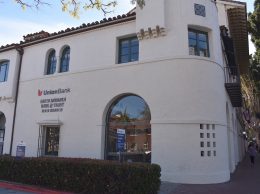Nipomo man must return $47M to fraud victims, banks
IN THIS ARTICLE
- Banking & Finance Topic
- Stephen Nellis Author
By Stephen Nellis Friday, May 3rd, 2013
John Mark Moore, 51, of Nipomo has pleaded guilty in federal court to defrauding his in-laws, a former business partner and five banks out of as much as $47 million.
Before his sentencing in July, Moore is likely to try to return as much of that as he can as restitution, according to prosecutors. But with $2.1 million in assets and $56.2 million in debts listed in his personal bankruptcy filing, it’s unclear how Moore will pay back the victims.
Moore’s criminal attorney did not return a request for comment from the Business Times.
Moore self-reported his crimes in early 2012, according to court documents, and reached a plea deal in which prosecutors recommended lower sentences — the maximum is 100 years in federal prison — if Moore agrees to restitution for the victims. While many of the debts related to the criminal case are listed in the bankruptcy filing, debts found to be incurred through fraud generally can’t be erased in bankruptcy court.
According to prosecutors, Moore, an agricultural chemicals executive, wrongfully took about $24 million from his-in laws, Michael and Marylou Cavaletto, one of the most established agricultural families in South San Luis Obispo County, over the course of 11 years. Prosecutors also say Moore misappropriated $23 million from five banks — Farm Credit West, Union Bank, Rabobank, Heritage Oaks Bank and Happy State Bank in Texas — in addition to Temecula businessman Gary McMillan.
The primary scheme involved diverting $13.8 million in existing funds from his in-laws’ personal and business accounts at Farm Credit West into accounts Moore and his family businesses controlled, according to prosecutors.
Prosecutors said the second scheme was to increase his in-laws’ lines of credit at Farm Credit West by forging their signatures and then transferring the money to firms owned by Moore and his own family. In another, he obtained lines of credit in his own name, his wife’s name, his family businesses and even his own mother’s name by submitting false documents, phony collateral and forging his wife’s signature, according to prosecutors. Lastly, Moore lured McMillian into investing $12.4 million in a bogus agricultural venture and then used the money for other purposes, according to prosecutors.
Moore took over his own partner’s Hanford-based fertilizer business and at one time maintained a web of agricultural chemical companies that collectively employed hundreds of people. It is not clear where the diverted funds went or what became of his interests in those companies. In his personal bankruptcy, Moore lists zero equity in any incorporated or unincorporated business, and only $250,000 in partnership interests.
Paul G. Stern, the assistant U.S. Attorney overseeing the case, told the Business Times prosecutors have no reason to believe that the the money was used for Moore’s personal gain.
“It’s not like he was stealing money to enrich himself. The case is about him trying to sustain some businesses he was in control of that were not particularly profitable,” Stern told the Business Times. “It does seem like a lot of money, but it was over an 11-year period. There’s no information pertaining to this case that would reflect that the money was somehow being moved offshore.”
Moore will be sentenced July 29 by U.S. District Judge David Carter, who will decide the final terms of the sentence, including restitution.
“It’s a judgment against him. It lasts as long as he’s around,” Stern said. “If he makes money after he gets out of jail, he’ll have to make his victims whole.”










